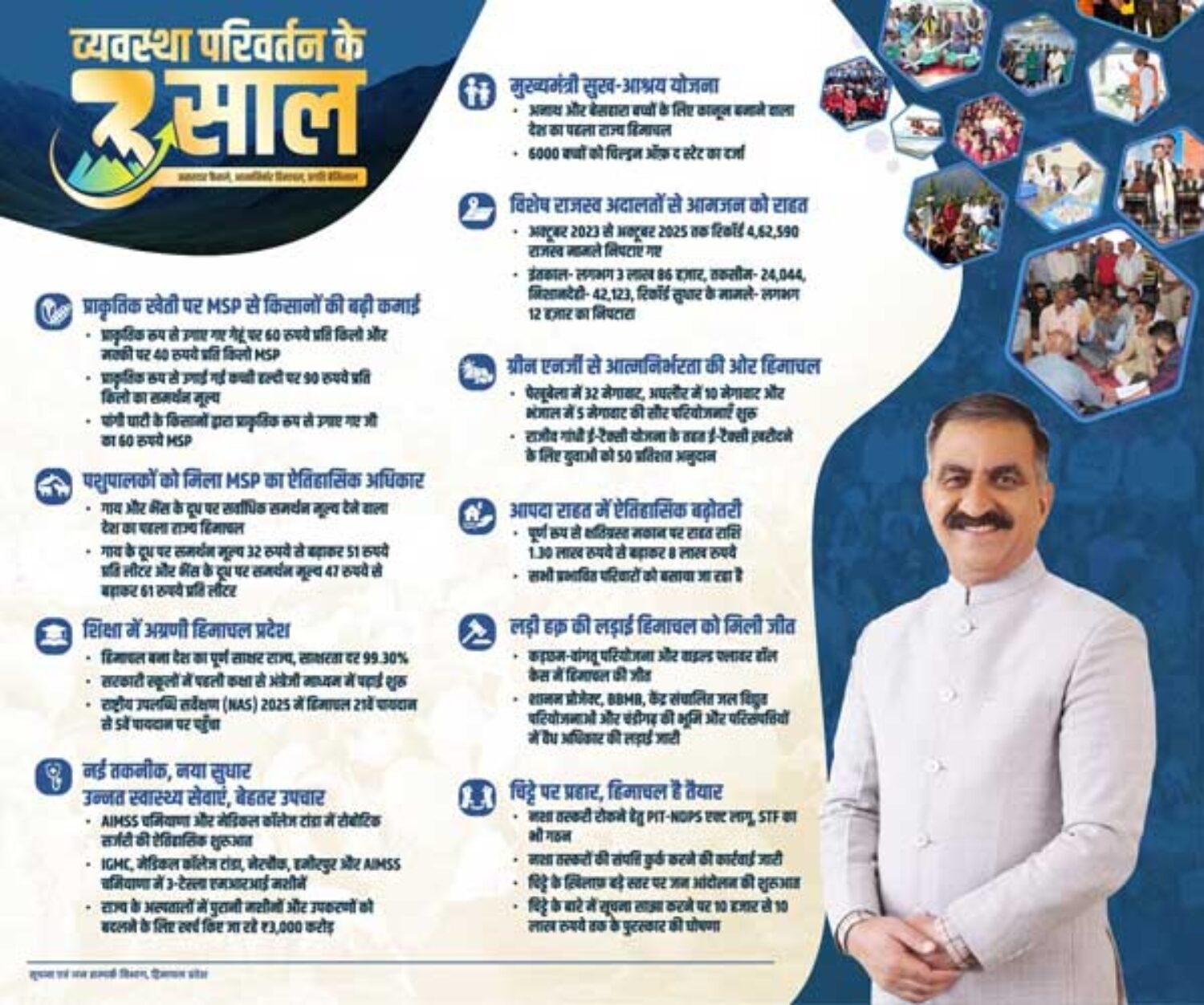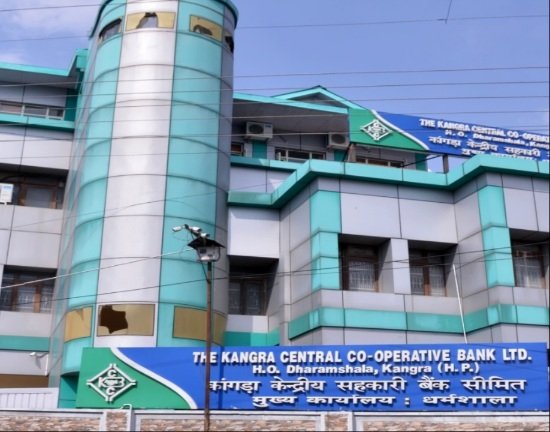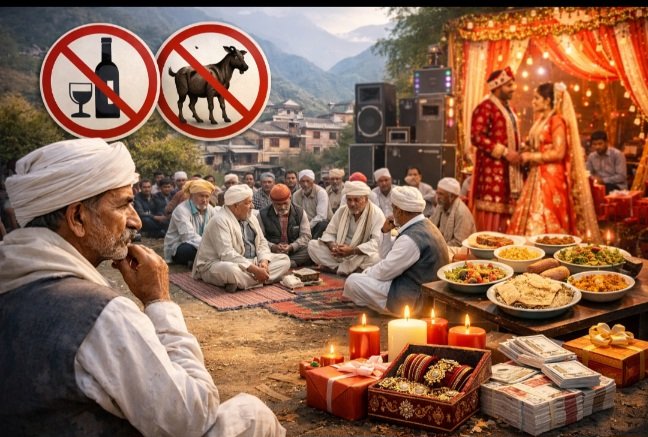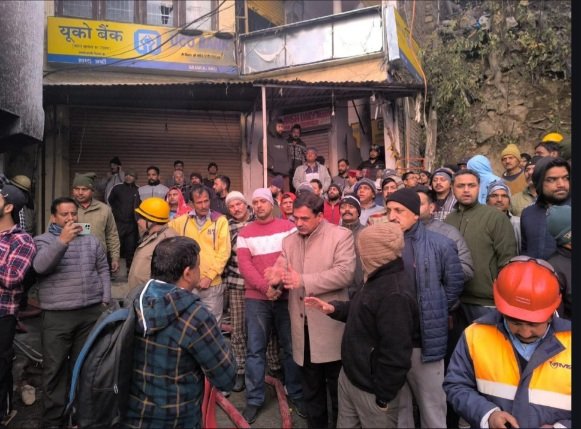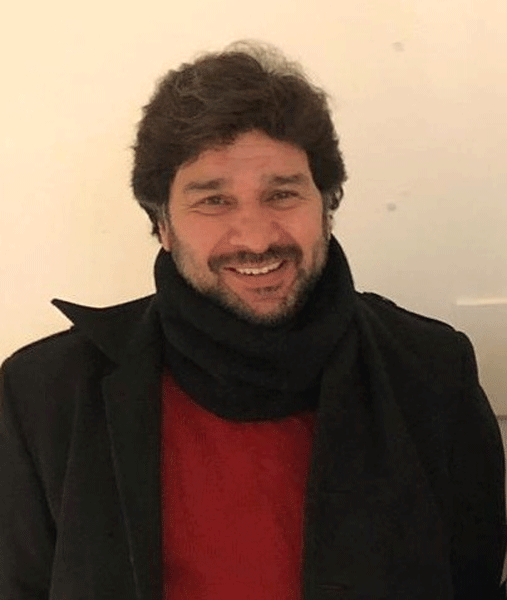
Shimla, Nov 7,
The Ministry of Housing and Urban Affairs (MoHUA), Government of India, has initiated the formation of a Model Municipal Act aimed at strengthening democratic governance and improving urban administration across the nation. A working group has been established to design this Act, which includes Tikender Singh Panwar, the former Deputy Mayor of Shimla, as a nominated expert member. The group comprises other eminent members, such as the Principal Secretary for Urban Development from the Government of Maharashtra, experts from the Indian Institute for Human Settlements (IIHS) in Bangalore, and retired bureaucrats with extensive urban governance experience.
This working group has been entrusted with the task of examining and addressing various challenges faced by municipalities and urban local bodies in India. The terms of reference for the working group outline a broad scope, focusing on enhancing the democratic and administrative framework of municipal governance.
One of the primary objectives is to redefine the role and responsibilities of mayors, with an emphasis on empowering them as key elected representatives with executive powers. This empowerment may involve the creation of a mayoral council, establishing clear reporting structures to streamline governance and accountability. The group will also consider the importance of regular and timely elections to ensure continuity in municipal councils, while supporting the strengthening of State Election Commissions to uphold fair electoral processes. Additionally, it proposes a fixed tenure for mayors, ensuring stability in leadership.
The responsibilities of municipal councillors will also be redefined, encouraging a more robust role for these representatives in municipal decision-making processes. Councillors would be expected to serve on at least one key deliberative committee to contribute more actively to municipal administration. Institutional mechanisms to enhance citizen participation, such as ward committees and area sabhas, are also highlighted as essential components to strengthen transparency and inclusivity in local governance.
Another significant point under review is the promotion of a participatory and inclusive budget-making process. This would mean involving citizens and ward committees directly in the development of municipal budgets, allowing the public to influence resource allocation decisions. To support efficient administration, the working group is tasked with creating an approval matrix to streamline project approvals and empower administrators. Additionally, elected leaders’ accountability in project execution and service delivery is emphasized as a critical aspect for ensuring that development initiatives are effectively implemented and meet community needs.
The group is also exploring the model of direct elections for mayors, as opposed to the current system of selection in some states, to further enhance the legitimacy and accountability of urban leaders. The roles of other committees comprising elected leaders, aside from the mayor, will also be reviewed to clarify responsibilities and strengthen collective governance.
The recommendations that emerge from this working group will form the basis for a Model Municipal Act, aimed at revolutionizing urban governance across India. This effort aligns with MoHUA’s larger mission to create more participatory, transparent, and accountable urban governance systems that empower citizens and foster inclusive development.

The HimachalScape Bureau comprises seasoned journalists from Himachal Pradesh with over 25 years of experience in leading media conglomerates such as The Times of India and United News of India. Known for their in-depth regional insights, the team brings credible, research-driven, and balanced reportage on Himachal’s socio-political and developmental landscape.

